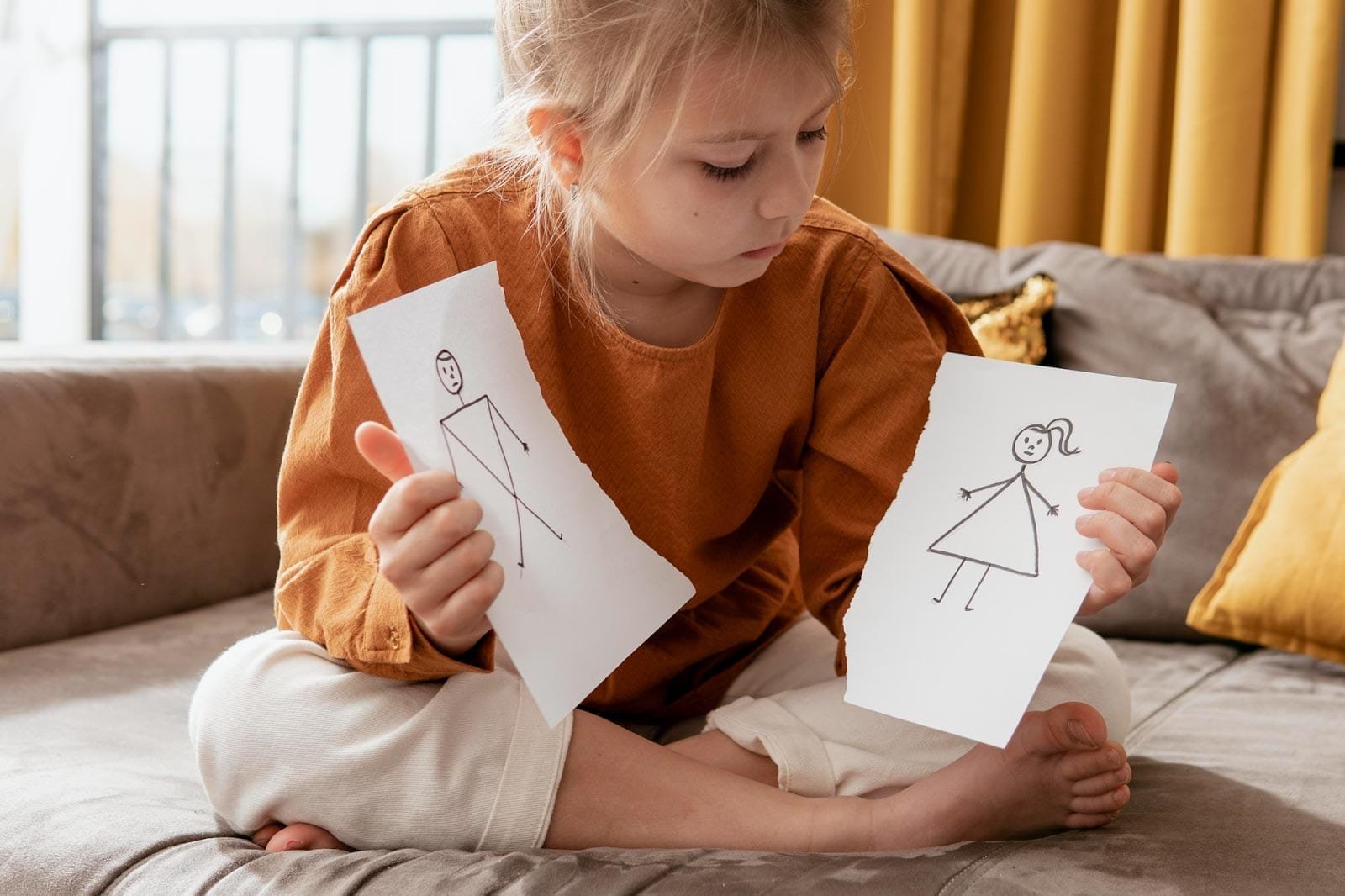
When couples with children get divorced in Singapore, the issue of child maintenance usually comes up. That’s because, according to the Singapore Women’s Charter, every parent has a legal obligation to maintain their child, regardless of the legitimacy of the child or the marital status of the parents.
Child maintenance matters in Singapore are decided by the Family Court. If you’re unsure about how child maintenance fees will be calculated or want to ensure that you receive a fair outcome, it’s important to engage an experienced divorce lawyer in Singapore who can guide you through the process and ensure that your interests are well-protected.
What Is Child Maintenance?

As mentioned above, every parent in Singapore has a legal duty to maintain their child till that child turns 21. This duty extends even if either spouse remarries – as long as the child is biologically yours, you have a legal responsibility to provide for them.
Child maintenance is either paid as a lump sum or in the form of a monthly allowance, and is meant to go towards providing food, clothing, accommodation, and education for the child.
The amount of child maintenance to be paid is determined by the court, and will be spelled out in a Maintenance Order which will be issued.
How To Calculate Child Maintenance In Singapore?
In Singapore, there is no fixed formula for determining child maintenance, but the court takes into account several factors based on Section 69(4) of the Women’s Charter.
Typically, the court considers the child’s living costs, such as accommodation, food, clothing, medical bills, and education. Maintenance can be ordered to be paid monthly or as a lump sum.
The key factors that the court evaluates include:
- Your child’s financial needs
- The income, earning capacity (if any), property and other financial resources of yourself, your spouse, and your child
- Your child’s physical or mental disability (if any)
- The age of you and your spouse
- The duration of your marriage
- The contributions made by each of the parties towards the child’s welfare
- The standard of living enjoyed by the child
- The manner in which your child was being, and which both yourself and your spouse expected your child to be, educated or trained
How Much Is Child Maintenance In Singapore?

There is no fixed amount for child maintenance in Singapore as it varies depending on individual cases. The courts assess several factors to determine a fair amount, considering the needs of the child and the financial situation of both parents.
Typical expenses covered by child maintenance include:
- Education costs, such as school fees and extracurricular activities
- Medical expenses, including healthcare and insurance
- Day-to-day living costs, like food, clothing, and transportation
But in the leading case of ANJ v ANK, the court used an income ratio approach to divide financial responsibility between parents.
In that case, the parents’ earnings were in the proportion of 62:38, and the court ordered a 65:35 split for child maintenance. This decision took into account who the main caregiver was and the financial resources of both parents.
The court is practical in its approach, ensuring that both parents contribute according to their ability. While there is no minimum for child maintenance in Singapore, the amount is intended to cover the reasonable needs of the child while balancing the financial capacities of both parents.
Who Must Pay For Child Maintenance?
In Singapore, both parents are responsible for supporting their child, regardless of who has custody. According to the Women’s Charter, this responsibility applies to both biological and adoptive parents.
Typically, the non-custodial parent (the parent the child does not live with) provides financial support through child maintenance payments. The custodial parent (the parent the child lives with) manages the day-to-day care of the child and also contributes financially by covering various living expenses.
In some cases, both parents may contribute financially, depending on their circumstances. The courts have affirmed that no parent can contract out of the obligation to maintain their child, and this duty remains until the child reaches 21 years old or longer if there are exceptional circumstances, such as a disability.
The courts ensure that child maintenance is a shared responsibility, ensuring that the child’s needs are met, whether directly by providing necessities or indirectly through financial support.
What Is Reasonable Maintenance For A Child?

In Singapore, “reasonable maintenance” refers to the financial support that parents are legally obligated to provide for their children. This duty is outlined in Section 68 of the Women’s Charter, which applies to all children, including illegitimate children.
It is important to note that this responsibility exists regardless of which parent has custody or if the child is living with a third party. Both parents are required to contribute to their child’s financial needs.
- Reasonable maintenance typically covers:
- Accommodation
- Food and clothing
- Education expenses
- Medical needs
- Extracurricular activities
The court balances the child’s needs with the parent’s financial situation when determining the appropriate amount of maintenance. There is no set minimum for child maintenance in Singapore, but the court ensures that the child’s welfare is prioritised.
In addition to child maintenance, Section 69 of the Women’s Charter also contains guidelines for spousal maintenance, such as for a wife or incapacitated husband. Unlike child maintenance, there is no automatic duty to pay spousal maintenance.
The court will consider various factors, such as the financial resources of both parties and their needs, to determine if a maintenance order is relevant. For a maintenance order to be made, the court must be satisfied that one spouse or parent has refused or neglected to provide reasonable support.
What Is The Cut-Off Age For Child Maintenance?
The general rule of thumb is that child maintenance is only applicable till the child turns 21.
However, there are certain circumstances in which children over 21 may still be entitled to maintenance. This is covered by under section 69(5) of the Women’s Charter, which states that adult children may still be entitled to maintenance if they:
- Have physical or mental disabilities
- Are currently or will be serving full-time national service
- Are still schooling or undergoing vocational or trade training
- Have other special circumstances that satisfy the court that provision of maintenance is necessary
In such cases of adult children seeking child maintenance, the child will need to apply for it themselves.
How Can I Apply For Child Maintenance?

If you have already filed for a divorce, child maintenance will automatically be addressed as part of the divorce proceedings during the ancillary matters hearing – issues related to custody of children, property and assets, and child maintenance all fall under ancillary matters.
However, if you’re applying for child maintenance outside of a divorce, the process is slightly more complex. You will need to submit a draft application, either through:
- The Family Justice Courts (FJC) Registry,
- The Singapore Council of Women’s Organisations (SCWO)
- The Integrated Family Application Management Systems (iFAMS)
There will also be a nominal $1 application fee. If your application is in order, the court will issue a summons to your spouse and both of you will have to attend a hearing.
You will be required to provide the following documents to support your application:
- A list of your and your child’s monthly expenses
- Receipts and documents justifying those expenses
- Proof of employment
- CPF statements and payslips for the past six months
- Your IRAS statements for the past three years
- Any documents showing outstanding debts
If your application is part of the divorce process, the maintenance order will be handled differently.
It follows the rules under Part X of the Women’s Charter, whereas applications filed outside of divorce proceedings are handled under Part VIII. If you need to vary or enforce an existing maintenance order, you may need to follow a different procedure.
If you’re unsure about the process or need legal guidance, seeking advice from a family lawyer in Singapore is recommended.
What Happens If My Spouse Fails To Pay Child Maintenance?
If your spouse fails to pay child maintenance, you can apply to the courts to enforce the Maintenance Order. The courts have several enforcement measures in place under Section 71 of the Women’s Charter. These include:
- Fines for each breach of the maintenance order.
- Imprisonment of up to one month for every month of non-payment.
- Financial counselling to help the non-payer manage their finances better.
- Garnishee orders, which allow the court to directly access your spouse’s bank account to recover unpaid maintenance.
- Community service, with the non-payer potentially being sentenced to up to 40 hours of service.
- Security orders, where the non-payer may be required to provide security to prevent future defaults in payment.
Even after facing penalties, the duty to pay child maintenance remains. After serving any punishments, your spouse will still be required to make the outstanding payments.
Additionally, it’s important to note that, legally, you must continue to provide your spouse with access to the children, even if they are not regularly paying child support. The failure to pay maintenance does not affect their parental rights to see the children.
Applying For A Maintenance Order

If parents cannot agree on child maintenance, a maintenance order can be applied for. Usually, maintenance orders are handled during divorce proceedings, but they can also be applied for separately.
To apply for a maintenance order without a divorce, you can:
- File an application via the Integrated Family Application Management System (iFAMS)
- Attend the registry at the Family Justice Courts
Once the application is submitted, the court will review it. If everything is in order, the court will issue a summons to the other party.
If the other party attends the hearing and agrees to the maintenance, the order will be granted. However, if the other party does not appear, they risk having a warrant of arrest issued against them.
If both parties cannot reach an agreement regarding the maintenance, the court may proceed to hold a trial to resolve the matter.
After a maintenance order is issued, it is legally binding and can be enforced. If the paying parent fails to meet their obligations, the receiving parent can apply to the court for enforcement measures to ensure compliance.
For those applying for a maintenance order, especially without divorce, understanding the legal process is crucial. Consulting a family lawyer can help ensure that the necessary steps are followed, leading to a better outcome for both the parent and the child.
Conclusion About Child Maintenance Guidelines In Singapore
Divorce in Singapore can be a complex process if you’re unfamiliar with it. So whether you’re concerned about safeguarding your assets during a divorce or ensuring that your children will be adequately cared for, it’s important to work closely with your divorce lawyer to ensure the best possible outcome for your case.
At Tembusu Law, we have some of the best divorce lawyers in Singapore on our team to ensure that you feel fully supported throughout your divorce journey. We’re extensively experienced in all manner of family law, including adoption, custody issues, handling of family assets and child support, and wills and estate planning.
In situations where you might be involved in criminal allegations or disputes, consulting our team of experienced criminal lawyers in Singapore can provide additional legal support.
Contact us today to discuss with us your needs.
Frequently Asked Questions About Child Maintenance Guidelines In Singapore
Are Parents Allowed To Make Private Child Maintenance Agreements In Singapore?
Yes, parents can come to a private agreement regarding child maintenance. However, it is advisable to formalise it through the court to ensure enforceability if either parent fails to adhere to the agreement.
Is Child Maintenance Taxable In Singapore?
No, child maintenance payments are not considered taxable income in Singapore, either for the recipient parent or the child.
Are Child Maintenance Orders In Singapore Applicable To Foreign Parents?
Yes, child maintenance orders issued by Singapore courts can apply to foreign parents, as long as the child is domiciled in Singapore. Enforcement can be more complex if the paying parent lives abroad.
When Can I Stop Paying Child Maintenance In Singapore?
Generally, child maintenance payments stop when the child turns 21. However, payments may continue if the child is still in education or has special needs that require extended financial support.